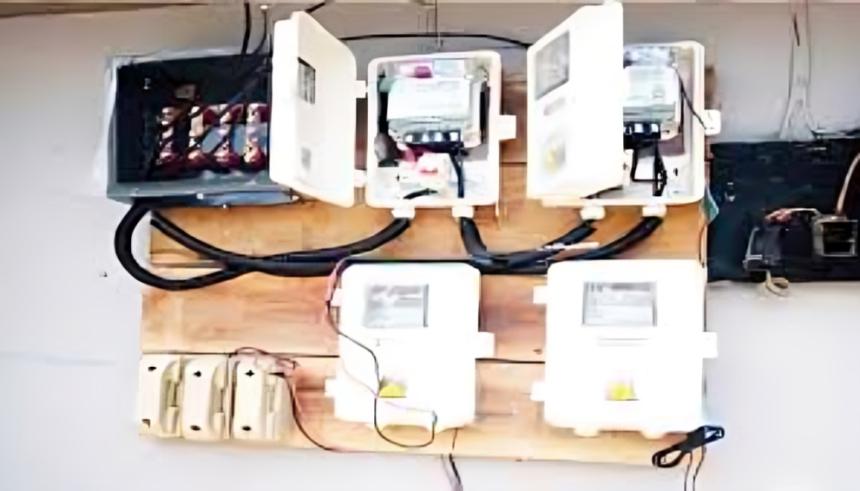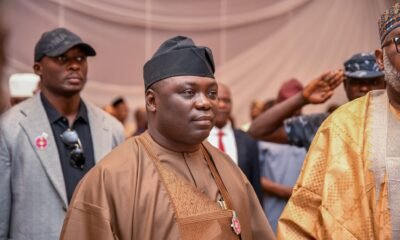News
Hurray, FG Set To Deploy 1.1m Electricity Meters To..

IT will be hurray shortly and more homes will enjoy electricity supply given that the Federal Government has secured N700bn to deploy 1.1 million electricity meters.
Though this is a scratch considering the population of Nigerians without meters, it is however considered in many quarters as a move in the right direction, which if sustained would indeed see many more homes enjoy electricity.
The Federal Government said it secured the N700 billion from the Federation Account Allocation Committee (FAAC) and that the deployment of the meters should commence this December.
The Minister of Power, Adebayo Adelabu, announced this on Tuesday in Lagos at the 2025 Nigerian Energy Forum (NEF), which ran under the theme: “Powering Nigeria through Investment, Innovation, and Partnership”.
The improved electricity supply initiative is fallout of the Presidential Metering Initiative (PMI), which would both close Nigeria’s metering gap, strengthen revenue assurance, and promote transparency in the electricity supply chain.
He said the PMI complements the 3.2 million meters being procured through the World Bank’s Distribution Sector Recovery Programme (DISREP), positioning the country to bridge the metering gap within five years.
“In the past two years, more than $2 billion has been mobilised through key programmes, including the World Bank’s DARES, NSIA’s RIPLE, and the JICA fund.
“These interventions are accelerating renewable energy deployment and access to reliable power,” he said.
According to him, the scheme would be realised via bilateral funding and development finance.
It would help in attracting private investment and expanding electricity access in underserved communities, schools, hospitals, and public institutions.
Providing additional background the minister said the country’s power supply situation stands to improve with the agreements signed at the 2025 Nigerian Renewable Energy Innovation Forum.
It would add nearly four gigawatts of solar manufacturing capacity annually, about 80 per cent of Nigeria’s current generation capacity.
“With this level of renewable energy production, Nigeria is on track to meet its domestic transition targets and serve regional power markets,” he said.
“Fifteen states have received regulatory autonomy, with one fully operational.
“We’re ensuring alignment between wholesale and retail markets,” NAN reports the minister as stating.
Adelabu said tariff reforms had improved supply reliability, reduced industrial energy costs, and boosted sector revenue from N1 trillion in 2023 to N1.7 trillion in 2024, with projections to exceed N2 trillion by 2025.
Away from electricity supply, he informed that President Bola Tinubu had approved a N4 trillion bond to settle verified debts owed to generation companies and gas suppliers, alongside a targeted subsidy plan to protect vulnerable consumers.
“Through sustained investment, innovation, and strong partnerships, we can power Nigeria’s journey toward a brighter, more resilient energy future,” he said.





















